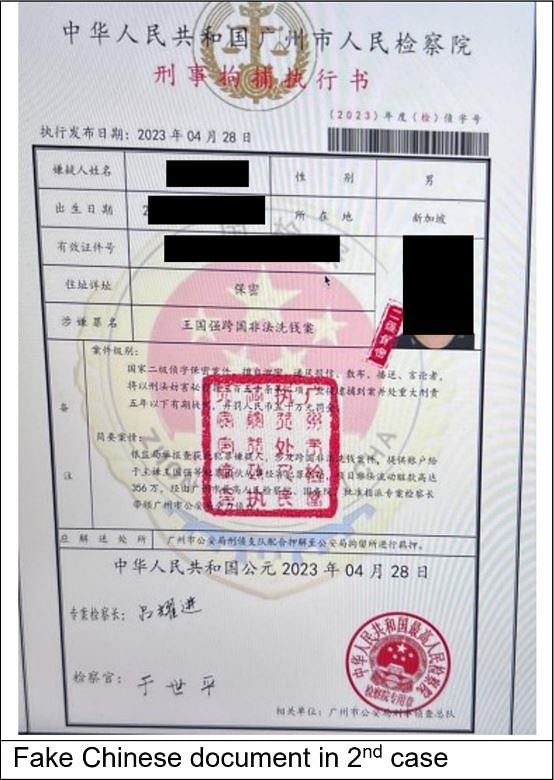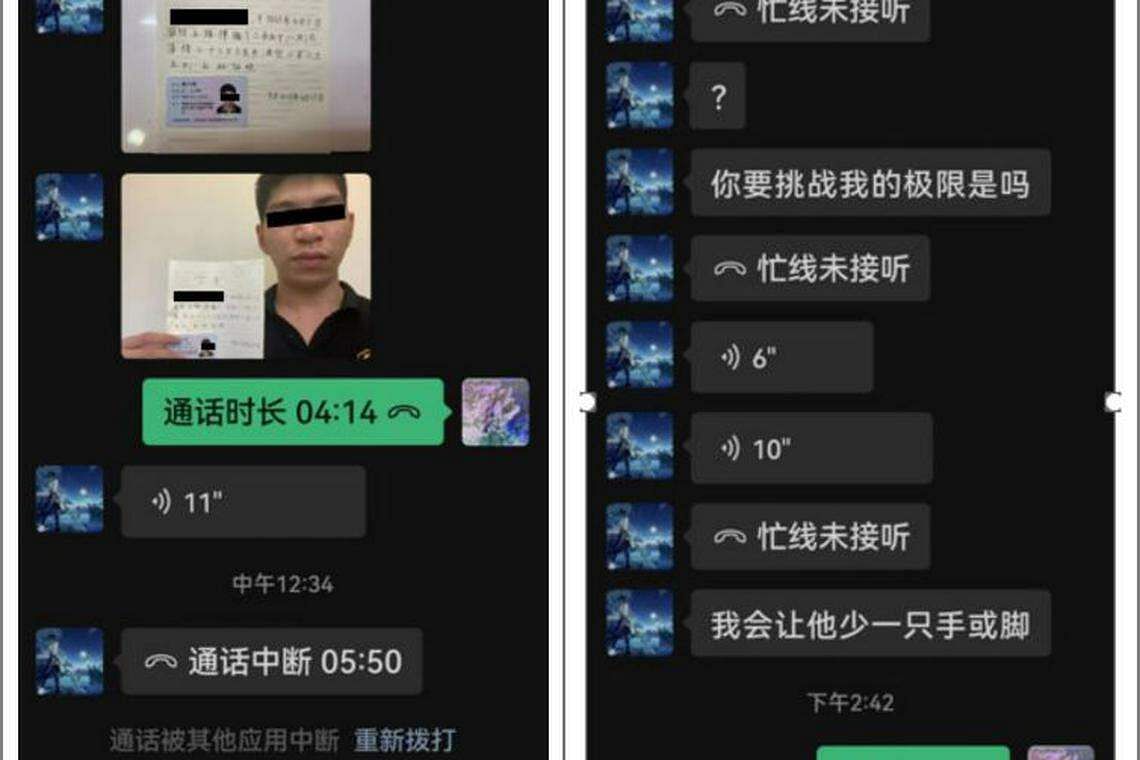2 men allegedly held captive here duped by scammers posing as China officials
SINGAPORE - Two men fell victim to scammers impersonating government officials in China who duped them into revealing personal information and their family background, and caused one of them to lose about $63,000.
The police said on Thursday that the victims, aged 22 and 19, had complied with the fake China police’s instructions to report thrice a day via chat applications and also divulged their banking details.
The police were alerted to the cases when they received separate reports from the victims’ parents on April 28 and April 29 claiming their sons had been held captive.
The parents, who are based in China, had received calls from unknown men who threatened to hurt their sons if they did not pay gambling debts the victims were alleged to have incurred.
Less than three hours after both reports, officers from the Clementi Police Division, Central Police Division, Tanglin Police Division, Criminal Investigation Department, Police Intelligence Department and Commercial Affairs Department conducted extensive follow-up investigations and tracked down the victims
Preliminary investigations found the victims had each received calls from a person claiming to be an Immigration and Checkpoints Authority officer.
Separately, the scammer alleged that the authorities had detected a parcel with prohibited items in Singapore registered under the victim’s name.
The victims were told their identities could have been misused and were asked to cooperate in investigations allegedly conducted by the China police.
The men complied out of fear after they were shown false Chinese documents alleging they had been involved in crimes, said the police, adding that the victims maintained contact with the scammers over chat applications.
The victim in the first case, which began in March, was asked to post bail of $15,000 or face his arrest and extradition to China for criminal charges.
He was warned not to leak any information about the investigation to third parties, including his parents.
The man then lied to his mother that he needed $15,000 for his school fees, which he paid to the scammers by transferring to a bank account on April 10.

He was then instructed to delete chat logs with the scammers, including the bank beneficiary’s details.
Two weeks later, he was told he needed to cough up 250,000 yuan (S$48,000) to prove his innocence. He lied to his mother again and transferred the sum to two China bank accounts to avoid delaying the investigation.
The scammers contacted the victim on April 27, this time asking him to write a promissory note agreeing to an online gambling debt of 2.58 million yuan. He was asked to send a selfie together with the note and his China identity card to them.
The victim agreed, as he believed the selfie was needed by a prosecutor to clear his case, the police said.
The next day, the scammer sent threats to his mother using his photo without his knowledge. She then contacted the Singapore police when she could not get in touch with her son.
In the second case, which began in April, the victim was similarly asked to post bail of one million yuan to avoid being arrested and extradited to China for criminal charges.
When he claimed he did not have the money, the scammers asked to speak to his parent for the cash.
The scammers manipulated him into providing his ID on messaging application WeChat and used it to communicate with his parents in China to demand payment of 100,000 yuan for a gambling debt that the scammers claimed their son had incurred.
His parents, who contacted the police here after they could not contact him, did not lose any money.

The police said overseas law enforcement agencies have no jurisdiction to conduct operations in Singapore, arrest anyone or ask the public to help with any form of investigations without the approval of the Singapore Government.
They also advised the public to take precautions by downloading the ScamShield app and setting security features like two-factor authentication for banks, social media and Singpass accounts.
People should not send or transfer money to anyone they do not know or have not met in person before, the police added.
The public should also check for scam signs and with official sources such as scamalert.sg or call the Anti-Scam Helpline on 1800-722-6688.
“Beware of phone calls from unknown numbers (with or without the “+” prefix) and refrain from giving out personal information and bank details to callers over the phone,” added the police.
“Government agencies will not ask for your bank account usernames and passwords.”
Those who suspect they have been scammed can protect themselves by informing the authorities, family and friends about the scam and refrain from acting impulsively when pressured by the caller.
Fraudulent transactions should be reported immediately.
Those with information relating to scams or are in doubt can contact the police on 1800-255-0000 or submit it online at police.gov.sg/iwitness. They can dial 999 if urgent police assistance is needed.
Get The New Paper on your phone with the free TNP app. Download from the Apple App Store or Google Play Store now


